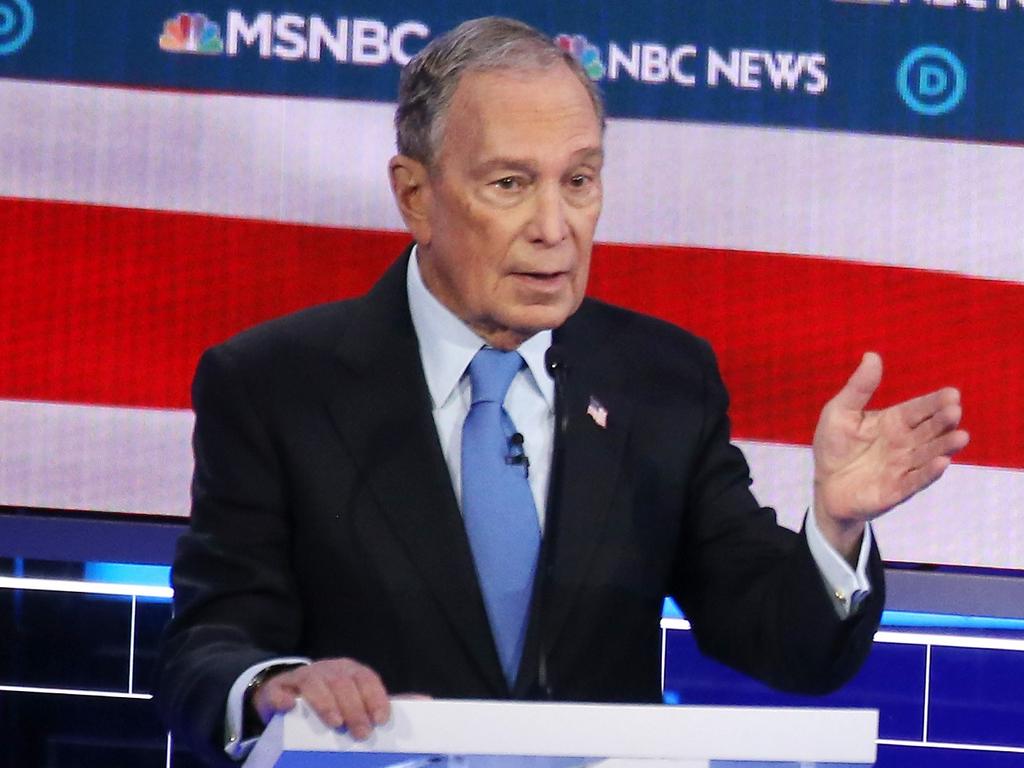
As things currently stand, the 78-year-old Sanders is hurtling towards the nomination after three primary contests, helped by a splintered moderate faction that is carving the votes of centrist Democrats between four candidates.
Unlike 2016 when Sanders was stopped by a single moderate candidate in Hillary Clinton, his opposition from the right is negligible this time because the moderate vote is being split between Joe Biden, Pete Buttigieg, Amy Klobuchar and, from March 3, Michael Bloomberg.
These four moderates are currently positioned like a circular firing squad, set to kill each other off while ensuring the survival of their true ideological enemy in Sanders.
We just won the Nevada caucus. This grassroots movement is unstoppable. Together, let's win the Democratic nomination, defeat Trump and transform the country! Join us live in San Antonio: https://t.co/XB1Ua14x8m
— Bernie Sanders (@BernieSanders) February 23, 2020
If moderate Democrats are as worried as some of them claim about the prospect of a democratic socialist like Sanders winning the nomination, then some of them will need to withdraw from the race quickly and lend their support to a single moderate flag-bearer.
Right now, there appears no prospect of that happening before either the South Carolina primary next Sunday (AEDT) or next week’s massive Super Tuesday (Wednesday AEDT) poll in which 14 states cast their votes. By that stage it may be too late to overcome Sanders who is leading the polls in the large delegate-rich states like California and Texas that vote on Super Tuesday.

Former Vice President Biden won’t pull out before then. He revived his flagging campaign with a second place behind Sanders in Nevada and he is favourite to win in South Carolina because of his popularity amongst African-Americans who compose around 60 per cent of Democrat primary voters in that state.
If Biden wins South Carolina and does well on Super Tuesday then he may yet lay claim to be the moderate candidate of choice for the party despite his poor showing in both Iowa and New Hampshire.
But the former mayor Buttigieg also won’t pull out before Super Tuesday. The 38-year-old Buttigieg came third in Nevada after exceeding expectations with a win and a second place in Iowa and New Hampshire respectively. He is not expected to perform strongly in South Carolina because of his lack of appeal to black voters but Buttigieg is arguably the most capable and impressive of the Democrat contenders and he will not fall on his sword before testing himself on the national stage on Super Tuesday.
We don’t have to choose between revolution and the status quo. Our campaign has shown there's a way forward that speaks for the rest of us—the majority seeking change. But we need your help to prepare that future.
— Pete Buttigieg (@PeteButtigieg) February 21, 2020
We need $13M by March 3—chip in to help: https://t.co/lroSSZeS2y pic.twitter.com/yDbkKUpn1f
The billionaire Bloomberg will not even contest his first primary until Super Tuesday when Democrats will learn in the space of 24 hours whether he has what it takes to win the nomination after his $US400 million-plus advertising blitz.
Amy Klobuchar and billionaire Tom Steyer have no realistic path to the nomination after their poor showings in Nevada and would do their party a favour by withdrawing immediately and throwing their support behind another candidate.


After Super Tuesday, pressure will build for moderate Democrats to rally behind whichever of them is coming second at that point behind Sanders. This would require a tempering of egos and a breakout of unity that has so far evaded the moderate wing of the party.
Unless something changes, the fractured moderates will have only themselves to blame for giving Sanders a free run to the nomination.
If their worst fears come true and Sanders’ big-spending, high taxing, hard-left agenda does help to ensure Trump’s re-election, the Democrats will have walked into a wilderness of their own making.
Cameron Stewart is also US Contributor for Sky News Australia








With socialist Bernie Sanders now threatening to tear apart the Democrat presidential primary race, pressure is growing on the party’s moderate contenders to wean their field to challenge him before it’s too late.